Dr Adnan Hameed Ullah

Associate Professor
University of Doha for Science and Tech.
Topic: IBAC – Internet of things, blockchains, AI and cybersecurity
The acronym “IBAC” typically represents the convergence of four key technology domains: Internet of Things (IoT), Blockchains, Artificial Intelligence (AI), and Cybersecurity. These areas are increasingly interrelated and play crucial roles in shaping the future of technology and digital innovation.
Internet of Things (IoT) refers to the network of physical objects or “things” embedded with sensors, software, and connectivity, allowing them to collect and exchange data. This interconnectedness enables smarter decision-making, automation, and enhanced efficiency across various industries. Blockchains are decentralized and distributed digital ledgers that record transactions securely and transparently. They provide a tamper-proof way to track and verify data, making them particularly valuable for applications like cryptocurrency and supply chain management. Artificial Intelligence (AI) encompasses the development of machines and systems that can perform tasks that typically require human intelligence. It includes technologies like machine learning, natural language processing, and computer vision, with applications spanning from chatbots to autonomous vehicles. Besides, Cybersecurity focuses on protecting computer systems, networks, and data from unauthorized access, cyberattacks, and breaches. It is a critical component in ensuring the integrity and confidentiality of digital assets.
The convergence of these four domains, represented by IBAC, offers innovative solutions and opportunities for businesses and industries seeking to leverage the power of data, secure transactions, and harness intelligent automation. This synergy holds the potential to drive technological advancements and shape the digital landscape in the years to come.
Speaker: Adnan Akhunzada, a distinguished Senior Member of IEEE, and Professional Member of ACM, possesses a rich and accomplished tenure of 15 years in Research and Development (R&D). Seamlessly navigating the intersection of ICT industry and academia, he stands as a testament to excellence and innovation. Renowned for high-impact publications, US Patents, and commercial products. Dr. Adnan’s patented cybersecurity and AI innovations have secured multi-million-dollar projects for global corporations such as Vinnova and EU Horizon. In recognition of his outstanding scholarly contributions, Stanford University acknowledged him as one of the top 2% scientists globally in 2023. Prof. Adnan Akhunzada leverages his strong cybersecurity skills and cutting-edge technological knowledge to solve industrial problems and develop state-of-the-art security tools, techniques, and frameworks. He’s a Postdoc in Cybersecurity, PhD in Network Security, and MS in Information Security. His Expertise in Cybersecurity & AI, Secure Future Internet, modelling and designing Secure & Dependable Software Defined Networks, and Large-Scale Distributed Systems (Cloud, Fog, Edge, IoT, IoE, IIoT, CPS); Lightweight Cryptographic Next Generation Communication Protocols, QoS/QoE, and Adversarial Machine Learning is Helping Shape the Future of Secure and Dependable Systems.
Dr. Mubashir Husain Rehmani
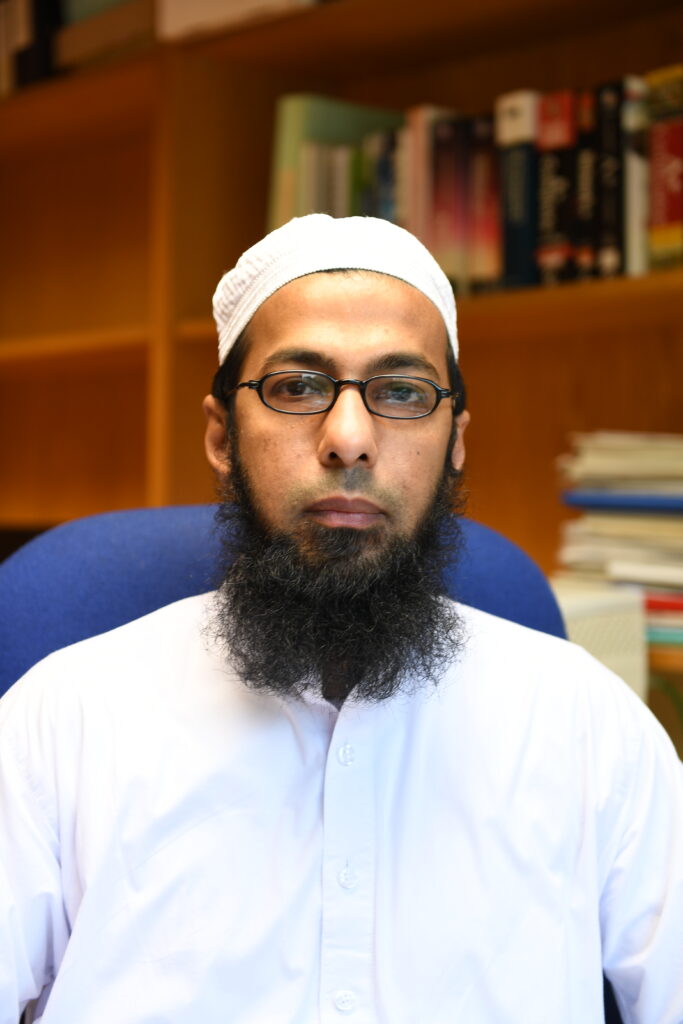
Title: Future of Cryptocurrency in Pakistan
Abstract: In this talk, first we introduce Cryptocurrency. We then discuss the underlying technology of Cryptocurrency i.e., Blockchain. Afterwards, we discuss its historical development, its architecture, where it is used and how it is implemented. We will also cover some technical details of these technologies. Finally, we discuss the future of Cryptocurrency in Pakistan.
Keywords: Bitcoin, Cryptocurrency, blockchain
Biography: Mubashir Husain Rehmani (M’14-SM’15, SFHEA) received the B.Eng. degree in computer systems engineering from Mehran University of Engineering and Technology, Jamshoro, Pakistan, in 2004, the M.S. degree from the University of Paris XI, Paris, France, in 2008, and the Ph.D. degree from the University Pierre and Marie Curie, Paris, in 2011. He is currently working as a Lecturer in the Department of Computer Science, at Munster Technological University (MTU), Ireland. He has authored/edited a total of eight books. One of his textbooks on Blockchain is part of the MSc curriculum at MTU, Ireland. He was ranked # 1 in all Engineering disciplines in 2017 by the Pakistan Council for Science and Technology (PCST), Ministry of Science and Technology, Government of Pakistan. He received several best paper awards. He is serving on the editorial board of several top-ranked journals including NATURE Scientific Reports, IEEE Communication Surveys and Tutorials, IEEE Transactions on Green Communication and Networking and many others. He has been selected for inclusion on the annual Highly Cited Researchers™ 2020, 2021, 2022 list from Clarivate. His performance in this context features in the top 1% in the field of Computer Science and Cross Field.
Dr. Hasan Ali Khattak
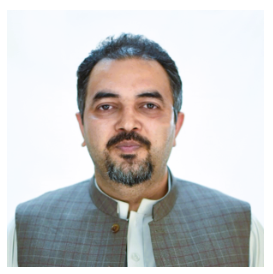
Associate Professor, Information & Computer Science Department,
King Fahd University of Petroleum and Minerals, Dharan, KSA
Topic: Fair and Unbiased: The Ethical Use of AI in Finance
Abstract: As artificial intelligence continues to revolutionize the financial sector, the imperative to balance innovation with ethical considerations becomes increasingly paramount. This talk will explore the multifaceted landscape of deploying AI in finance, focusing on the ethical considerations and guidelines essential for ensuring fair, unbiased outcomes and contributing to responsible consumption and production. Delving into topics such as algorithmic bias mitigation, transparency, data privacy, and regulatory compliance, the session aims to provide a comprehensive understanding of the challenges and opportunities in building ethical AI solutions. Attendees will gain insights into the importance of human oversight, the role of explainable AI, and the need for continuous monitoring and auditing to foster a culture of responsibility in the rapidly evolving financial technology landscape. Join us for an engaging discussion that navigates the complex intersection of innovation and responsibility in the era of AI-driven finance.
Speaker: Hasan Ali Khattak, Associate Professor at King Fahd University of Petroleum and Minerals, Dharan, KSA. He has done his PhD in Computer Engineering from Politecnico di Bari, Italy, and has a decade-long career in Academia. With expertise in autonomous systems in healthcare, transportation, and finance, he has a keen interest in using modern solutions such as Data Analytics and Visualisations to solve everyday problems.
Dr Moshin Raza
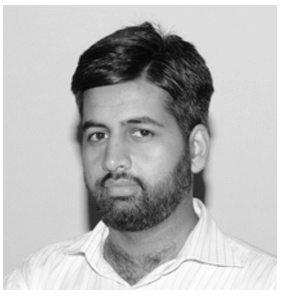
Senior Lecturer
EdgeHill University. UK
Topic: Internet of Things: Enabling smart connected environments
Abstract: Internet of Things (IoT) is an emerging technology for information gathering, data processing and communications. IoT has various applications like smart homes, smart cities, connected vehicles, Industry 4.0, e-healthcare, cyber physical systems and digital twins. IoT can also serve as a platform to establish an intelligent network of devices which can interrelate data and processes to effectively establish feedback systems for automation of processes. Over the past few years, IoT has played an indispensable and vital role in realization of smart connected environments. IoT can improve interconnectivity, flexibility, scalability, time efficiency, cost effectiveness, security, productivity and operational efficiency of such environments. The research on the use of IoT in smart environments is increasing exponentially with IoT emerging as a main contender in the field of wireless automation and a key enabling technology to realise the next generation of smart connected environments.
Speaker: Mohsin Raza is a senior lecturer at the Department of Computer Science, Edge Hill University, UK. Prior to this, he worked as a lecturer (2019-20) at Northumbria University, UK, as a postdoctoral fellow (2018-19) at Middlesex University, UK, as a Demonstrator and Doctoral Fellow (2015-17) at Northumbria University UK, Junior lecturer (2010-12) and later as Lecturer (2012-15) at Mohammad Ali Jinnah University, Pakistan, and Hardware Support Engineer (2009-10) at USS, Pakistan. His research interests include IoT, 5G and wireless networks, autonomous systems, machine learning, Industry 4.0 and digital twins
Dr Naveed Anwar

Assistant Professor
Northumbria University, UK
Dr Shahid Hussain

Assistant Professor
Penn State University, USA
Speaker: I completed my Ph.D. in Computer Science from City University of Hong Kong, MS (Software Engineering) from City University of Science and Information Technology, Peshawar, Pakistan and MSc (Computer Science) from Gomal University, DIK, Pakistan.
I am currently working as an Assistant Professor at the Computer Science and Software Engineering Department, School of Engineering, Penn State University Behrend, Erie, PA, USA. Before Joining PSU, I have worked as a Pro temp (NTTF) at the Computer and Information Science Department, University of Oregon, Eugene, Oregon, USA. Prior to this, I was working as an Assistant Professor in COMSATS University, Islamabad. I have worked as course chair and acting Director Administration at Namal College, Mianwali an affiliated College of University of Bradford, UK. Moreover, I have worked as a faculty member of University of Peshawar, Center of Applied Epistemics, and CECOS University. I have worked as programmer with SRDC, British Council, Peshawar, Pakistan. I am a research collaborator at SERC, MID Lab, Smart Intelligence team, SERC-KUST, SE-CU (HK) team, SE-NUAA (CN) from September 2014 to date.
Moreover, As an editorial staff member, i am providing volunteer services to numerous reputed journals and conferences such as IET Software, KSII Transactions on Internet and Information Systems, Journal of Information and Knowledge Management, EASE and so on.
My current research focus is to explore the software engineering practices for High Performance Computing (HPC) software packages and applications to improve their process and benchmark their quality levels, to automate the document generation for open-source software, and to explore the implications of Machine learning, Artificial Intelligence (AI), Big data analysis and soft computing technique in analysis and design of softwares.
Dr. Suleman Khan
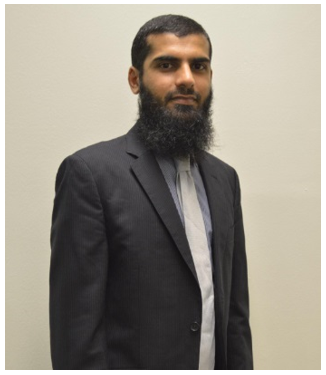
Associate Professor
University of Bradford, UK
Topic: Software-Defined Networks adoption with its Opportunities & Future Challenges
Software-Defined Networks (SDNs) represent a transformative approach to networking, presenting a spectrum of opportunities alongside inherent challenges. SDNs offer centralized control and programmability, thereby augmenting network agility, scalability, and operational efficiency. Through the abstraction of network intelligence from physical infrastructure, SDNs facilitate dynamic resource allocation, traffic optimization, and novel service provisioning. However, the adoption of SDNs presents notable challenges, including heightened security risks, interoperability complexities, and the imperative for robust management frameworks. Additionally, the intricacies associated with migrating legacy systems to SDN architectures and ensuring seamless integration with existing infrastructures pose considerable hurdles. Notwithstanding these challenges, the potential advantages of SDNs in reshaping network management paradigms and fostering innovative applications underscore the critical necessity of addressing these impediments to fully realize their transformative potential.
Speaker: Suleman Khan is currently an Associate Professor at the School of Computer Science, AI & Electronics at the University of Bradford. Previously he received a Ph.D. degree (Distinction) in Cybersecurity from the Universiti Malaya, Malaysia, in 2017. He was a faculty member at the School of Information Technology, Monash University, Malaysia, Department of Computer and Information Sciences, Northumbria University, Newcastle upon Tyne, U.K and the School of Engineering and Computing, University of Central Lancashire, UK. He has published more than 90 high-impact research articles in reputed international journals and conferences including IEEE Transactions on Intelligent Transportation Systems, IEEE Transactions on Sustainable Computing, IEEE Communications Surveys & Tutorials, IEEE Internet of Things Magazine, IEEE Internet of Things Journal, and ACM Computing Surveys. His research areas include but are not limited to, network forensics, software-defined networks, Internet-ofThings, Blockchain, cloud computing, and vehicular communications.
Dr. Ihsan Ali
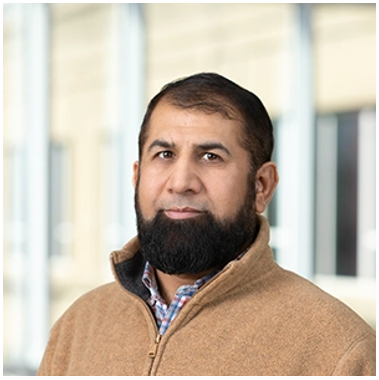
Assistant Professor
Southeast Missouri State University, USA
Speaker: Dr. Ihsan Ali (Senior Member IEEE) is currently working as an Assistant Professor Department of Computer Science, Southeast Missouri State University, previously he was research associate at the Network Systems Research lab at the University of Nebraska. He also works as a research associate at University of Malaya. He has published papers in premier technical journals, including IEEE Transactions on Intelligent Transportation Systems, the Elsevier Future Generation Computer Systems Journal, IEEE Communications Surveys & Tutorials, and IEEE Communications Magazine. He is serving as an Academic Editor in different journal in the domain of computer science. Few of them are Express, Wireless Communications and Mobile Computing, Journal of Computer Networks and Communications. He is also an Editorial Board Member of Recent Advances in Computer Science and Communications (Bentham Science Publishers Ltd USA), and Computer Systems Science and Engineering (CSSE) (Tech Science Press) and topic Guest Editor for the special issue on “Intelligent Automation for Smart Agriculture: From Sensor Networks to Decision Support Systems”, “Device Condition Monitoring and Predictions using IoT in Industry 5.0” in Measurement: Sensors Journal. He was also the lead GE of the special issue on Data Collection in Resource-Limited Networks (WSNs, IoT, Sensor Cloud). He has been actively involved in research and teaching activities over the past fifteen years in different countries, including the US, Pakistan, Saudi Arabia, and Malaysia. His research interests include Wireless Sensor Networks, Sensor Cloud, Cloud Computing, Fog Computing, IoT, cyber security and Smart communities.
Dr Ahmed Bouridane

Professor
University of Sharjah
Dr Noor Zaman

Professor
Taylor University Malaysia
Topic: Beyond Imitation: How Generative AI is Redefining Human-Machine Collaboration
Abstract: Beyond Imitation: How Generative AI is Redefining Human-Machine Collaboration, we embark on a journey into the evolving landscape of creativity, innovation, and collaboration at the intersection of human ingenuity and artificial intelligence. This keynote explores how Generative AI, with its capacity to autonomously generate novel content and solutions, is transcending mere imitation to become a catalyst for redefining the nature of collaboration between humans and machines.
We delve into the symbiotic relationship between Generative AI and human creativity, illuminating how these technologies are transforming traditional paradigms of collaboration. Through compelling examples and case studies, we witness how Generative AI serves as a creative partner, augmenting human capabilities and expanding creative horizons. From art and design to music composition and storytelling, we uncover the myriad ways in which Generative AI is enriching the creative process and fostering interdisciplinary collaboration.
Moreover, we confront the ethical and societal implications of this collaborative evolution, grappling with questions of authorship, authenticity, and the future of work in an AI-driven world. Ultimately, “Beyond Imitation” invites us to reimagine the possibilities of human-machine collaboration, inspiring us to embrace the transformative potential of Generative AI in shaping the future of creativity and innovation.
Speaker: Prof. Dr Noor Zaman Jhanjhi (N.Z Jhanjhi) is currently working as a Professor in Computer Science (Cybersecurity and AI), Program Director for the Postgraduate Research Degree Programmes in computer science, Director of the Center for Smart Society (CSS5) at the School of Computer Science at Taylor’s University, Malaysia. He has been nominated as the world’s top 2% research scientist globally consecutively for 2022, and 2023; he is among the top five computer science researchers in Malaysia and was nominated as an Outstanding Faculty Member by the MDEC Malaysia for the year 2022. He has highly indexed publications in WoS/ISI/SCI/Scopus, and his collective research Impact factor is more than 900 plus points. His Google Scholar H index is 60, and I-10 Index is close to 275, and his Scopus H index is 39, with more than 600 publications on his credit. He has several international patents on his account, including Australian, German, and Japanese patents. He edited/authored over 50 research books published by world-class publishers, including Springer, IGI Global USA, Taylors and Frances, Willeys, Intech Open, etc. He has excellent experience supervising and co-supervising postgraduate students, and more than 37 Postgraduate scholars graduated under his supervision. Prof. Jhanjhi serves as Associate Editor and Editorial Assistant Board for several reputable journals, such as PeerJ Computer Science, CMC Computers, Materials & Continua, Computer Systems Science and Engineering CSSE, Frontier in Communication and Networks, etc. He received the Outstanding Associate Editor award for IEEE ACCESS. Active reviewer for a series of top-tier journals has been awarded globally as a top 1%
reviewer by Publons (Web of Science). He is an external Ph.D./Master thesis examiner/evaluator for several universities globally and has evaluated 60 plus theses. He has completed more than 40 internationally funded research grants successfully. He has been a keynote/invited speaker for over 60 international conferences and
has chaired international conference sessions. He has vast experience in academic qualifications, including ABET, NCAAA, and NCEAC, for 10 years. His research areas include Cybersecurity, IoT security, Wireless security, Data Science, Software Engineering, and UAVs.
